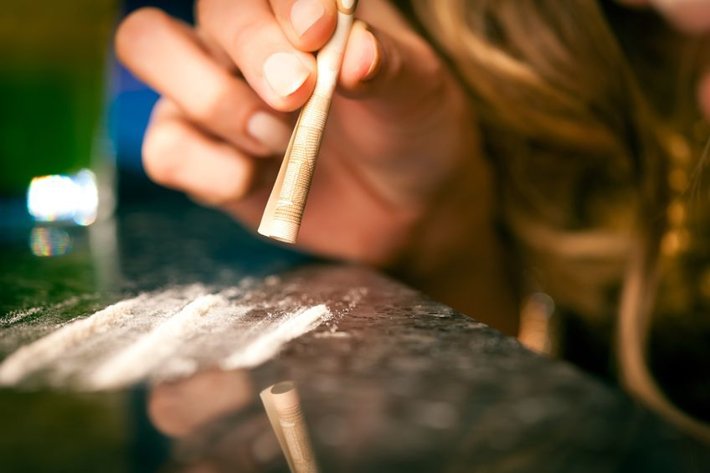Is Your Lifestyle Putting You at Risk for Cocaine Addiction

Drug substances are often seen as solutions for a variety of life problems, whether minimal or extensive. In order to understand why some drugs, specifically medical drugs, can have limited usefulness but all drugs are potentially dangerous, it is important to recognize the fact that while drugs can suppress undesirable sensations and heighten desirable sensations, they cannot ever resolve the primary issue for which they have been taken. For example, ibuprofen that is taken for a broken leg may be able to interrupt the body’s communication of pain so that the individual is able to rest and the body is able to heal, but the ibuprofen cannot actually heal the broken leg. It, therefore, follows that if drugs are looked to as a sort of permanent solution for a problem, such as lack of energy and wakefulness that is handled by cocaine use, the individual will inevitably struggle with drug addiction.
Cocaine Abuse and Addiction
There are many things that may potentially cause an individual to suffer from cocaine abuse and addiction, but lifestyle is definitely a key concern. Cocaine is a stimulant drug substance, causing the individual to feel more energized and alert, remaining awake and “productive” for longer periods of time. If an individual has an intense lifestyle that they feel they can never quite keep up with, they may look for solutions in order to resolve this. Take the time to consider what causes cocaine addiction in many cases:
- Stress at work or school. People often become stressed out when they feel that they have a lot of work to accomplish and not enough time to accomplish it in. This can cause them to look for ways that they can increase their energy levels and decrease their need for sleep, which can cause them to consider cocaine use.
- Peer pressure. Peer pressure to use cocaine can be extremely difficult to overcome, especially when cocaine use is made to seem normal, safe and acceptable. In many cases, peer pressure boils down to having the individual “just try it” once, and that’s all it takes to become hooked.
- Gateway drug use. Individuals who have used one type of stimulant drug substance, like Ritalin, nicotine or alcohol, and have grown to tolerate that drug substance, often look for a stronger stimulant to switch to, in which case they may look to cocaine.
- Self-medication. It can sometimes happen that an individual who is struggling with various mental, emotional or spiritual problems will look for relief through self-medication, and this may cause them to turn to cocaine use.
This does not mean that any individual who is struggling with one of these issues is doomed to fall into cocaine addiction. It does mean, however, that their lifestyle is dangerous to them and should be addressed and resolved so that they can live a better quality life that is free from all drug use or threat of drug use.
Preventing Cocaine Addiction
Avoiding cocaine dependency and addiction begins with recognizing those things that lead to dependency and addiction and then working to avoid them. This includes avoiding individuals who you know use cocaine and other drug substances as well as areas where cocaine sales or use occur. It also includes cutting back on stressors that make you feel overwhelmed and in need of strange solutions, as well as taking plenty of time to relax and enjoy pleasant recreational activities and hobbies with good, sober friends.
At the end of the day, it is important to recognize that you alone have the power to decide whether you use cocaine—or any other drug substance for that matter. If you find that any aspect of your lifestyle has you looking for ways to be more energized, more alert or to stay awake longer and yet you don’t have natural ways by which to accomplish this, it may be time to evaluate whether your lifestyle is truly the healthy one you deserve.


